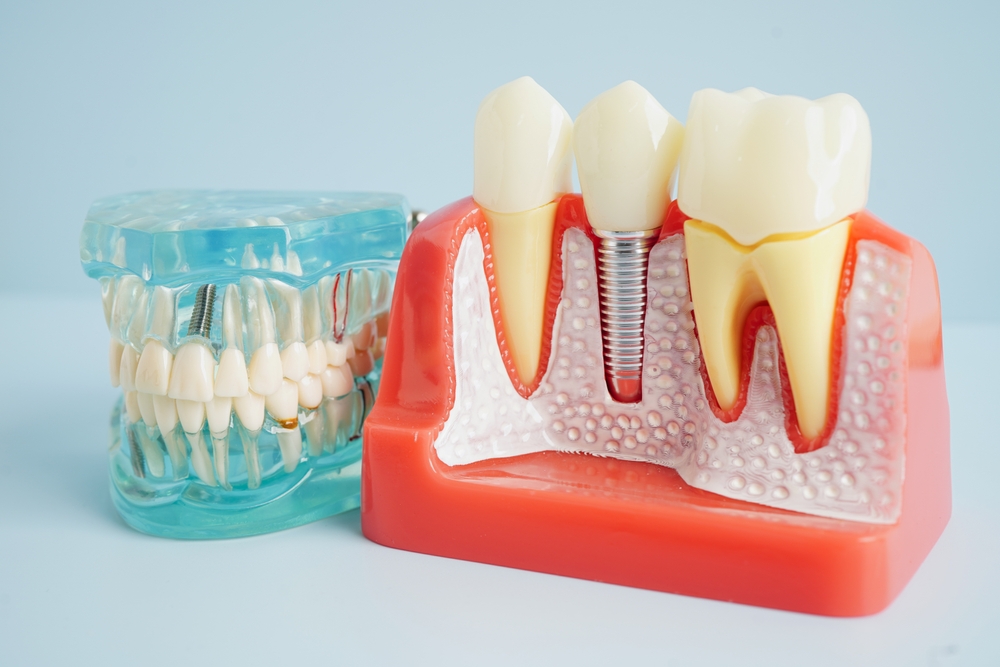Missing teeth can significantly impact your ability to chew, speak, and smile with confidence. Dental implants provide a permanent and effective way to replace missing teeth. These titanium posts are surgically placed into the jawbone, integrating with it to act as a strong tooth root. Once the implant is secure, a crown is added to restore the appearance and function of a natural tooth.
Benefits of Dental Implants
A long-lasting solution for tooth replacement is dental implants. These implants can function effectively for 25 years or more with proper care. Unlike removable dentures or bridges, which typically need replacement every 10-15 years, implants utilize biocompatible titanium that fuses naturally with your jawbone through a process called osseointegration. This durability makes them a reliable, long-term solution for restoring your smile.
They also restore normal chewing function, allowing you to enjoy the same biting force as natural teeth. Unlike dentures that slip or restrict your diet, implants let you eat a wide variety of foods with ease. Their stability and functionality make them ideal for daily use.
Dental implants protect your oral and facial health. Tooth loss can lead to jawbone deterioration, causing a sunken facial appearance or premature aging. Implants stimulate the bone, maintaining density and preserving natural facial contours. Implants do not require altering healthy adjacent teeth, unlike traditional bridges, which support better long-term oral health. Their natural look and feel support a healthier smile.
Considerations and Limitations
The dental implant process requires time and patience. After placement, it generally takes three to six months for the implant to fuse with the jawbone. Once healing is complete, the final crown can be attached. In complex cases, the process may take longer, but the result is a stable, durable solution.
Implant placement is a surgical procedure with some risks, such as infection, bleeding, or nerve damage, though complications are rare. Following your dentist’s post-operative care instructions and maintaining excellent oral hygiene during recovery are key for healing and minimizing risks. While implants don’t decay like natural teeth, peri-implantitis—a condition affecting surrounding tissues—can occur. Regular brushing, flossing, and professional cleanings are essential for preserving their longevity.
Making an Informed Decision
When considering dental implants, discuss your needs with a qualified dental professional. They can assess your oral health, explain alternative options, and guide you through the process. This helps you make a decision suited to your specific situation.
Factors such as your overall health, lifestyle, and long-term oral health goals should be discussed with your dentist. While dental implants often involve a higher initial cost than other options, their durability and benefits provide lasting value. Many patients find the improved quality of life they offer to be worth the investment.
Taking the Next Step
Dental implants are a durable, long-term solution for missing teeth that can enhance your quality of life. Schedule a consultation with an experienced implant dentist to determine if they are the right choice for you. Replacing missing teeth is an investment in your overall health, and acting early helps prevent complications and protects your oral health.
